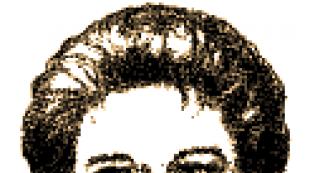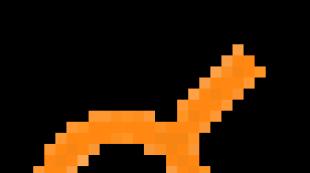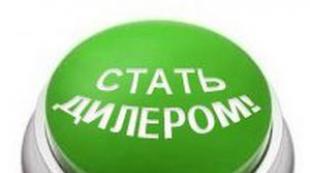Modern vocabulary. Linguists have calculated the vocabulary of the average person
A group of Belgian researchers representing the University of Ghent found out how many words, on average, people who have reached the age of twenty know American English as their native language. As it turned out, this figure is 42 thousand.
Experts note that we are talking about words in the basic form, that is, in the one in which they can be seen in the dictionary. Proper names were also not included in the list. In the course of their study, scientists used a list that included about 62 thousand words.
Scientists conducted tests with the participation of more than 220 thousand people. Each of them was shown a list that included 67 "real" words, as well as 33 combinations of letters that looked like English words, but in fact they are not. Participants in the study had to say which of the words in front of them they knew the meaning of. At the same time, the choice of a non-existent word removed “points” from the participants, so it was unprofitable for them to try to name certain words at random. In addition to testing directly, volunteers had to provide some information about themselves, including their age and level of education.
Based on the number of correct answers, scientists, using a previously developed algorithm, were able to guess how many words of the English language each of the people who were tested knows in total. For participants aged 22, the figure was about 42,000.
According to scientists, after reaching the age of twenty, a person continues to replenish his vocabulary with new words about once every two days, that is, by the age of sixtieth, the number known to man words grows by about six thousand more.
Medium active lexicon Russian-speaking person, according to the calculations of Russian researchers, is as follows:
- By the beginning of school, a child knows an average of 20 thousand words (including derivatives), by the time of graduation this value increases to 51 thousand, that is, 2.5 times.
- Adults who have just graduated from school know, on average, 2-3 thousand words more than those who did not finish it at the time.
- The vocabulary of adults who have received secondary or secondary specialized education is practically the same and averages 75,000 words.
- Those who studied at universities and institutes (and not necessarily graduated from them) know an average of 81,000 words.
- Candidates and doctors of science know an average of 5 thousand more - 86 thousand words.
The larger a person's vocabulary, the more likely they are to succeed in life.
Rich vocabulary: methods, ways and techniques to increase it
IN modern world, a beautiful and rich speech speaks of culture and good education. Society perceives a person with a rich vocabulary as smart and creative personality. The larger a person's vocabulary, the more likely they are to succeed in life.
Methods, methods and techniques for increasing vocabulary:
1. Think about which of the banal, hackneyed, hackneyed words and expressions you are used to using on a daily basis in standard communication situations. Write them down on a piece of paper. Recorded?
Now take an explanatory dictionary or dictionary of synonyms from the shelf. Find these words that are already hurting your own ears and that you are tired of hearing every day.
Study the long list of alternatives and say each of these words out loud. Which one reflects your personality? Which one suits you personally?
Try each one as you try on a suit and see which ones you find comfortable and cozy.
Choose a few of these words and practice by saying them out loud until they become a natural part of your vocabulary;
2. Communication is the main source of replenishment of a person's vocabulary. During a conversation, each participant replenishes his vocabulary from the arsenal of the interlocutor, there is a word exchange between them.
Talk to your friends, acquaintances, relatives as much as possible. Use new words in your vocabulary, knowledge about a word is nothing without using it;
3. Read, reading books is good. Start with those authors who are more understandable and close to your interests.
Gradually add literature harder. Text where they meet interesting words and the expressions that you want to remember and apply in the future, re-read aloud (reading to ourselves, we also replenish our vocabulary, but not so quickly, because in this way we only see the words, while reading aloud, we also we hear and, most importantly, we pronounce, therefore we remember better);
4. When you spot a new word, don't just look at its definition in a dictionary. Pay attention to the turn of speech in which this word is used, try to replace it for yourself with the corresponding synonym.
Try to rhyme, come up with as many suitable phrases as possible. The more you know about a word, the faster you will learn to use it without complicating your memory. E it will immediately affect the beauty and personality of your speech;
5. Write. Rewrite other people's articles and your favorites literary works following the example of Demosthenes, who rewrote Thucydides' History eight times in a row.
Crossword puzzles are not just entertainment, but also a way to develop vocabulary. Use this opportunity on the road, on vacation. Choose crossword puzzles from well-known publications or those that have a good reputation;
6. For those who spend a lot of time on the road, driving or have absolutely no free time to use books and dictionaries there is a unique opportunity develop your speech and increase your vocabulary with audiobooks.
A similar method will also be acceptable to an audience that perceives better by ear. In any case, while away the time in traffic jams reading good literature is much more useful and effective for your development. published
Active vocabulary includes words that are used in speech and writing.
Passive Vocabulary includes words that a person recognizes by reading and listening, but does not use them himself in speaking and writing. The passive vocabulary is several times larger than the active one.
Vocabulary of the average person
Russian language
"Explanatory Dictionary of the Living Great Russian Language" by V. I. Dahl has about 200 thousand words. The most common words, according to the "Frequency Dictionary of the Russian Language" edited by L. N. Zasorina, are about 40 thousand words, and a little more than 9 thousand words have the highest frequency, covering more than 90% of the texts processed when compiling the dictionary. According to modern estimates, the vocabulary of a high school student is about 5,000 words. A highly educated person knows about 8,000 words. It is interesting that Pushkin's Dictionary of Language, which contains the words used by the classic, contains an unsurpassed figure so far - approximately 24 thousand words. The unpublished Dictionary of the Language of V. I. Lenin, according to some sources, was supposed to contain about 30 thousand words.
English language
According to the official Oxford Dictionary, English language there are 250 thousand words and about 615 thousand word formations. But some researchers argue that when counting English words all neologisms must be taken into account, including words from Internet blogs and other unofficial resources, as well as words used only in varieties of English, for example, in China and Japan. So, the company Global Language Monitor counted 986 thousand words in English.
Japanese language
The Japanese language contains about 50,000 characters. The active vocabulary of the Japanese is formed by the Ministry of Education, which recommends to its compatriots 1850 hieroglyphs for everyday use, of which 881 are studied in primary and high school. The average Japanese uses 400 characters in everyday life, while newspapers and magazines use 3,000 characters.
see also
Wikimedia Foundation. 2010 .
Synonyms:See what "Vocabulary" is in other dictionaries:
Exist., number of synonyms: 5 active vocabulary (5) vocabulary (5) vocabulary (10) ... Synonym dictionary
LEXICON- LEXICON. Same as potential dictionary...
LEXICON- a set of natural language words, the meaning of which the person understands and can explain. It is divided into active words used in everyday speech and writing, and passive words understandable when reading and oral perception ... Professional education. Dictionary
Lexicon- - 1. all words, the meaning of which is understood and / or used by the individual in his language practice; 2. any specially limited list of words (eg dictionary, glossary); 3. a complete list of words of any language. The number of such words, as well as the dynamics ...
LEXICON- 1. A complete compendium of words that an individual knows. 2. A complete list of words used in the language. 3. Any specially limited list of words. When this last meaning is meant, a qualifying word is usually used to denote ... ...
VOCABULARY ACTIVE- VOCABULARY ACTIVE. See active vocabulary... New dictionary methodological terms and concepts (theory and practice of teaching languages)
VOCABULARY PASSIVE- VOCABULARY PASSIVE. See passive vocabulary... A new dictionary of methodological terms and concepts (theory and practice of teaching languages)
VOCABULARY, PASSIVE- In general - vocabulary (1), used passively, that is, when reading and listening. The passive vocabulary of an individual is much larger than the active vocabulary. Also called vocabulary recognition... Dictionary in psychology
Sight-readable vocabulary- for beginners to read - words that they can read quickly (“from a sheet”) without explicit phonetic decoding. Children who are taught to read using the “whole word” method usually have a larger sight-reading vocabulary than children who ... ... Encyclopedic Dictionary of Psychology and Pedagogy
VOCABULARY, ACTIVE- Vocabulary in general (1) used actively, i.e. in speaking and writing. Wed with passive vocabulary... Explanatory Dictionary of Psychology
Books
- Vocabulary for elementary school, Zinoviev Larisa Aleksandrovna. This English vocabulary guide has been compiled in accordance with the current program for elementary school. The presentation of the material "from simple to complex" will help to gradually master everything ...
Each language, dialect, dialect, slang on our planet is unique and interesting in itself. And each of the listed options has its own specific set of words that fill the dictionaries and heads of students. But before starting to speak directly about the English language, I would like to start with our native language - native for me and for you reading this article - and the great Russian language.
Answer the question for yourself: how many words mother tongue you know and use absolutely freely in your speech? How will you count them? The first way is to take the most big dictionary and begin to put a tick in front of those words that are familiar to us. 3 weeks pass when we reach the words “jasper”, “box”, “foot-and-mouth disease” (who knows what), open the first page again and start counting. After another 3 weeks, everyone will reach a certain huge number of words and think about why he did all these manipulations. For what, I will tell a little later. The second way - we do not take a dictionary, we do not count anything, because we, personally, do not need this and we have good arguments. Why this is still necessary, I will also tell in this article. And finally, the third way - we find a definition test on the Internet, go through it and know exactly to what extent the number of words available to our consciousness varies. But even here a problem arises: how to choose the right test, because there are dozens of them, what are passive and active vocabulary, etc. So, let's turn to the theory and figure out what the vocabulary is and why I decided to talk about it today.
In simple, unscientific terms, vocabulary is that particular set of words that certain person. It owns, and not just “I heard a ringing, I don’t know where it is.” Those. understands the meaning of a word, knows how to apply it in oral and written speech, perceives it in live communication. The whole vocabulary of a particular person can be divided into active and passive. The active vocabulary is the set of words that he uses in speech and writing when he is the source of this speech. The passive vocabulary is a set of those words that a person recognizes when reading this or that literature, or hearing them in oral speech, but is not the source of these words, i.e. does not use in his own speech. This distinction applies to both your native language and the language you are studying as foreign language, since in both cases there are those words that we personally use, and those whose meanings we recognize with our memory.
If we talk about the composition of the language as a whole, then the Russian language is almost impossible to calculate, since it is too rich and diverse, and according to various sources, it has from 2.5 to 4.5 million words and vocabulary units. In English, everything is much simpler, the last time an official count was carried out in 1999, and according to his data, there are just over one million words and vocabulary in this language. Therefore, we can safely rejoice that we are studying English, because a million is not so much. But seriously speaking, out of this “slightly more than a million” in ordinary everyday speech, even the most educated person uses no more than 20-30 thousand words and vocabulary units (and no more than 50 thousand are stored on the hard drives of his memory) - and moreover, that English is his native language. If we are talking about English as a foreign language that we study, then the most high performance for an active vocabulary they are 8-10 thousand words, and for a passive one up to 15 thousand. Those. you see that the indicators are not so great and scary as it might seem at first glance.
Now it’s worth talking about how to calculate the very cherished figure that you reach with your amount of knowledge. There are many various ways, tests, calculations. I suggest you pay attention to two of them, and I will argue why I chose these options. You can find the first of these counting options on the site, which is dedicated to the joint American-Brazilian research project, aimed specifically at counting the words of your passive vocabulary. It is built very simply - you just need to mark those words whose meaning (at least one) you know for sure. The only problem is whether you can be honest with yourself and really truthfully choose the words you learn. At the end, the system itself calculates your result and gives an approximate value of +/- 500 words. The second option for counting words allows you to do this by levels and specifically see what your omissions are. You can find this calculation option on the website. This test will allow you to go through the levels and determine exactly where we put an end to and continue learning. Each version of the test consists of 6 levels, and you need to take them starting from the very first, even if you are sure that you know much more. The result will give you the opportunity to understand what your vocabulary is and what you should pay attention to.
But why count? Here is a question that many of you are now concerned about. After all, numbers are not important to anyone, you think. But it's not. Firstly, such a calculation allows you to objectively assess your level of knowledge, and secondly, when passing certain tests in British and American schools, I will ask you to indicate the results of the vocabulary calculation. And I do not advise any of you to do this offhand, because after testing, there may be an embarrassment of inconsistency between the data you specified and the test results. Therefore, knowing your vocabulary (especially active) is not only useful, but in some cases necessary.
- vocabulary in the amount of 350-700 words is an active vocabulary necessary for the initial (basic) level of foreign language proficiency.
- a vocabulary of 700-1300 words - enough to explain yourself (if it is active for you); and for reading at a basic level (if that's your passive vocabulary).
- vocabulary in the amount of 1300-2800 words - an active vocabulary sufficient for everyday everyday communication; in case it is passive, it is sufficient for fluent reading.
- a vocabulary of 2800-5500 words is quite suitable for free reading of the press or scientific literature.
- a vocabulary of up to 8000 words is enough for normal full-fledged communication of a person studying English as a foreign language, which will allow him to understand almost any literature, TV programs and the press.
- vocabulary of up to 13,000 is the active vocabulary of a person with high level education that learns English as a foreign language.
But even if you passed this test successfully, you should remember that only the words fixed in your memory will not give you the opportunity to communicate fluently in English, since this skill has many other aspects. However, having mastered 2000 correctly chosen frequently used words, with a certain grammatical base and practice, you can easily communicate in the magnificent language of Foggy Albion.
If you find an error, please highlight a piece of text and click Ctrl+Enter.
Vocabulary is the set of all the words that a person owns. It is generally accepted that a wide vocabulary is inherent in the most educated people, as well as writers.
Active and passive vocabulary
Active vocabulary is those words that a person uses in when he speaks or writes. At different people this figure can vary greatly. Nobody knows and does not use all the words of the language.
The active vocabulary of a primary school student is approximately two thousand words, by the end of the institute this figure increases at least five times! "Pushkin's Language Dictionary", which includes all the words used by the great poet in his works, contains about 20 thousand words.
Passive vocabulary is those words that a person does not use himself, but understands if he sees or hears them. As a rule, there are many times more of them than the words included in the active vocabulary. This includes various terms, words of limited use (jargonisms, archaisms or neologisms), just quite rare and unusual words.
It's funny that, with the vocabulary of the Russian language of about half a million words, we all actively use no more than 6 thousand, which is about 90% of human speech, and only 10% are rarely used.
The concept of active and passive vocabulary is used in linguistics and literary criticism, as well as in educational and clinical psychology. Teachers also use it. At school, they teach that vocabulary needs to be replenished, and for this, read more. It's true. Reading - The best way replenish your passive lexical baggage. Moreover, the most pleasant, because a person follows the twists and turns of the plot, while the words themselves are remembered. But not every book is suitable for this. We must take  good literature, you can use the classics, otherwise there is a risk of running into the author, who has the lowest vocabulary: there is nothing to learn from him, you can teach him yourself!
good literature, you can use the classics, otherwise there is a risk of running into the author, who has the lowest vocabulary: there is nothing to learn from him, you can teach him yourself!
Another way is to look up unfamiliar words in a dictionary. In principle, it is not necessary to rush through the Ozhegov dictionary in search of the right word - there are corresponding resources on the Internet, which are very convenient to use. But, although you will learn the meaning of the word anyway, you are more likely to remember it when using a paper dictionary. The search itself, which will take more time and effort, will more firmly fix the word in, because it will be constantly repeated mentally while a person is in search.









